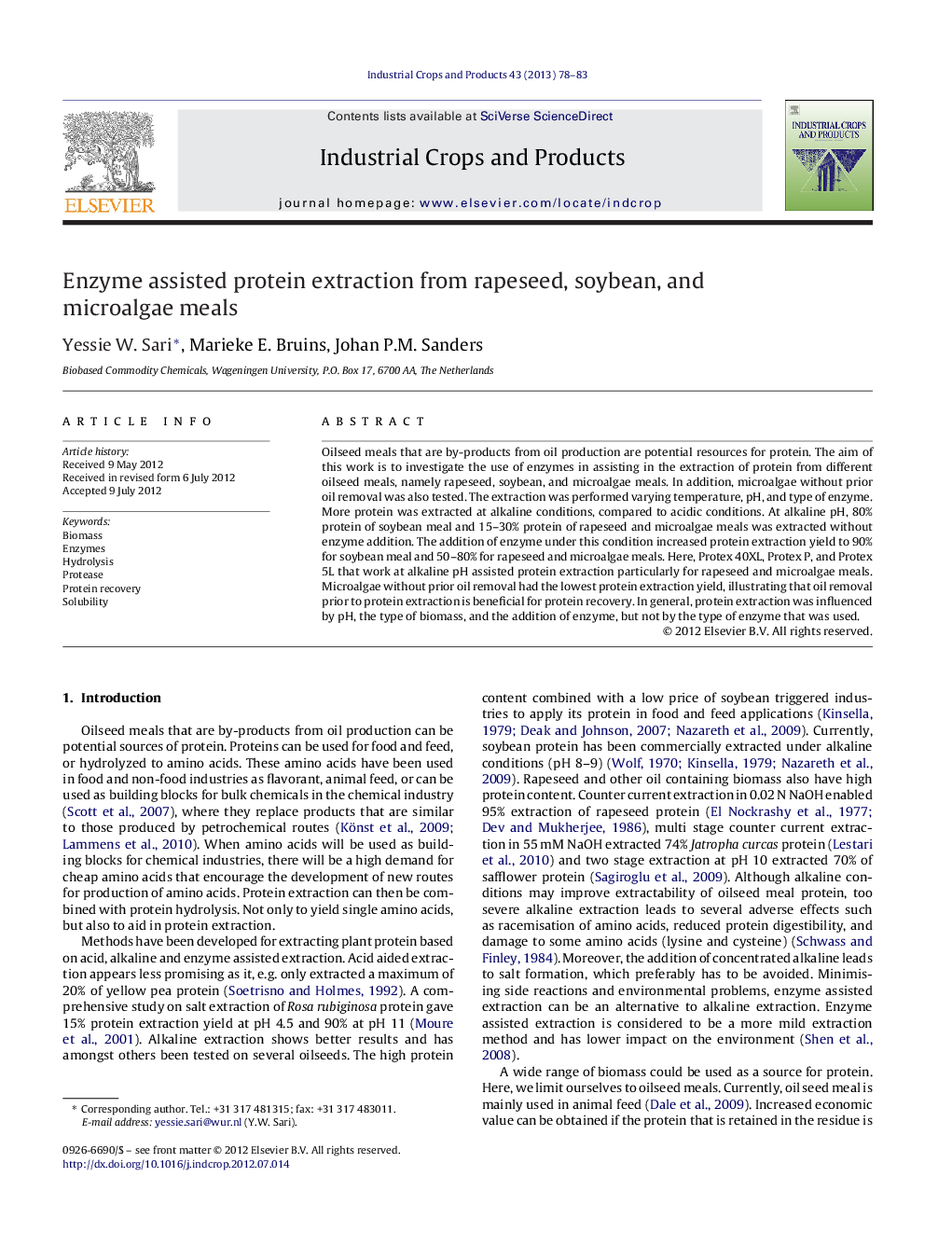| Article ID | Journal | Published Year | Pages | File Type |
|---|---|---|---|---|
| 4514099 | Industrial Crops and Products | 2013 | 6 Pages |
Oilseed meals that are by-products from oil production are potential resources for protein. The aim of this work is to investigate the use of enzymes in assisting in the extraction of protein from different oilseed meals, namely rapeseed, soybean, and microalgae meals. In addition, microalgae without prior oil removal was also tested. The extraction was performed varying temperature, pH, and type of enzyme. More protein was extracted at alkaline conditions, compared to acidic conditions. At alkaline pH, 80% protein of soybean meal and 15–30% protein of rapeseed and microalgae meals was extracted without enzyme addition. The addition of enzyme under this condition increased protein extraction yield to 90% for soybean meal and 50–80% for rapeseed and microalgae meals. Here, Protex 40XL, Protex P, and Protex 5L that work at alkaline pH assisted protein extraction particularly for rapeseed and microalgae meals. Microalgae without prior oil removal had the lowest protein extraction yield, illustrating that oil removal prior to protein extraction is beneficial for protein recovery. In general, protein extraction was influenced by pH, the type of biomass, and the addition of enzyme, but not by the type of enzyme that was used.
► The protein has a potential for bulk chemical production. ► The ability to extract protein from residue will create added value to chemical production chains. ► Rapeseed, soybean, and microalgae meals are potential protein resources. ► The extraction influenced by type of biomass, pH, and enzyme addition, but not by the type of enzyme. ► Extensive hydrolysis is less important for protein extraction.
